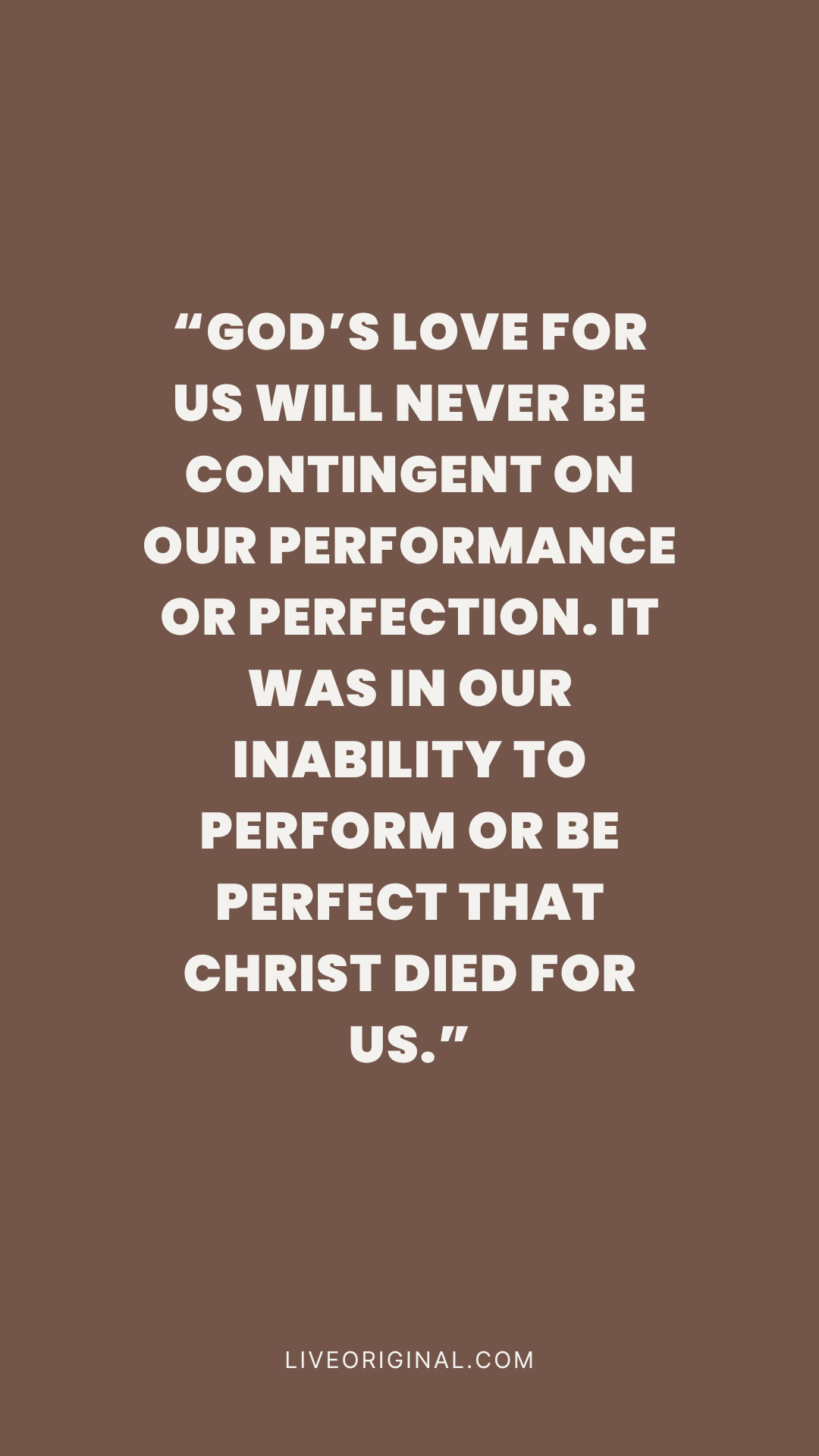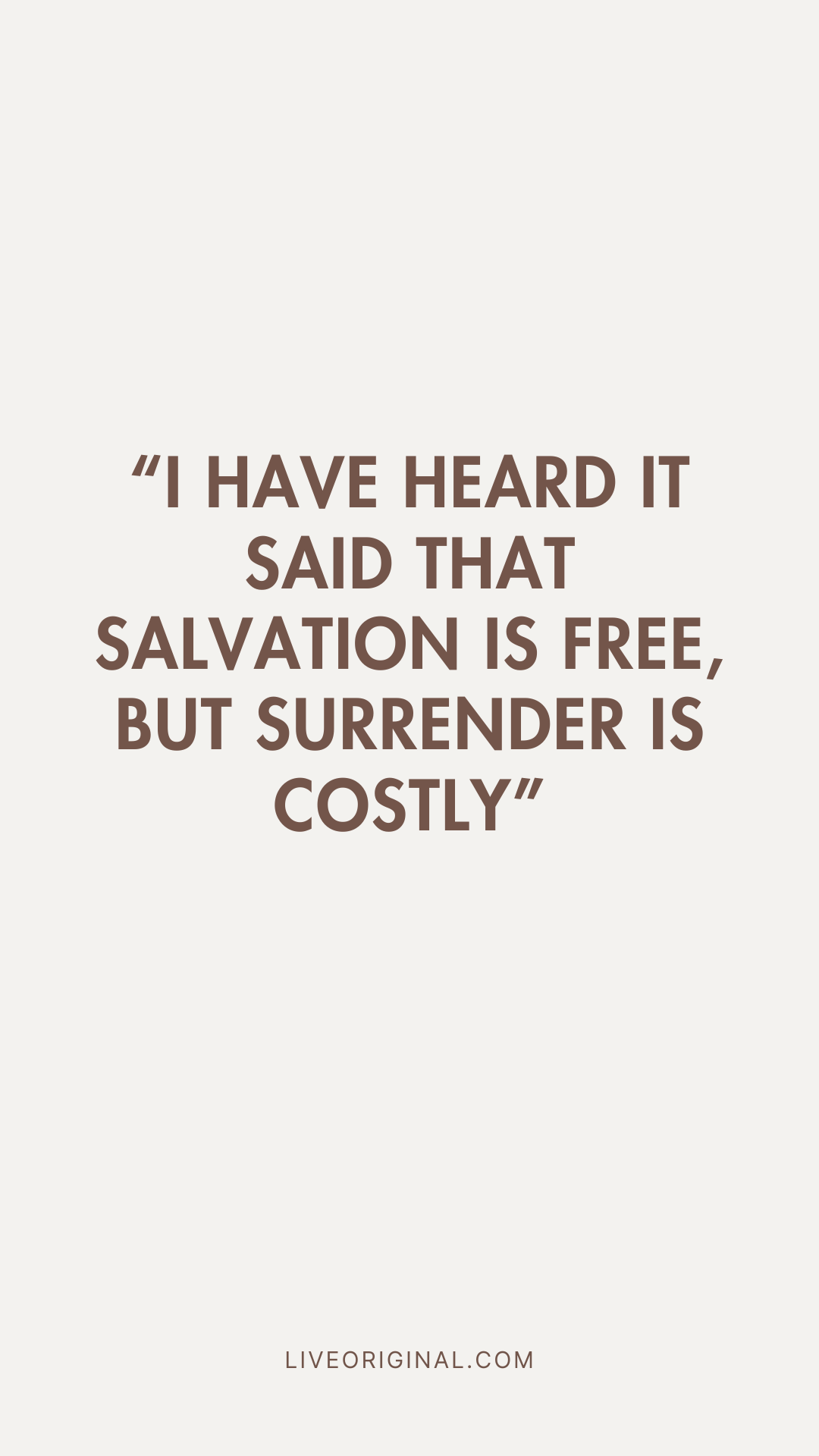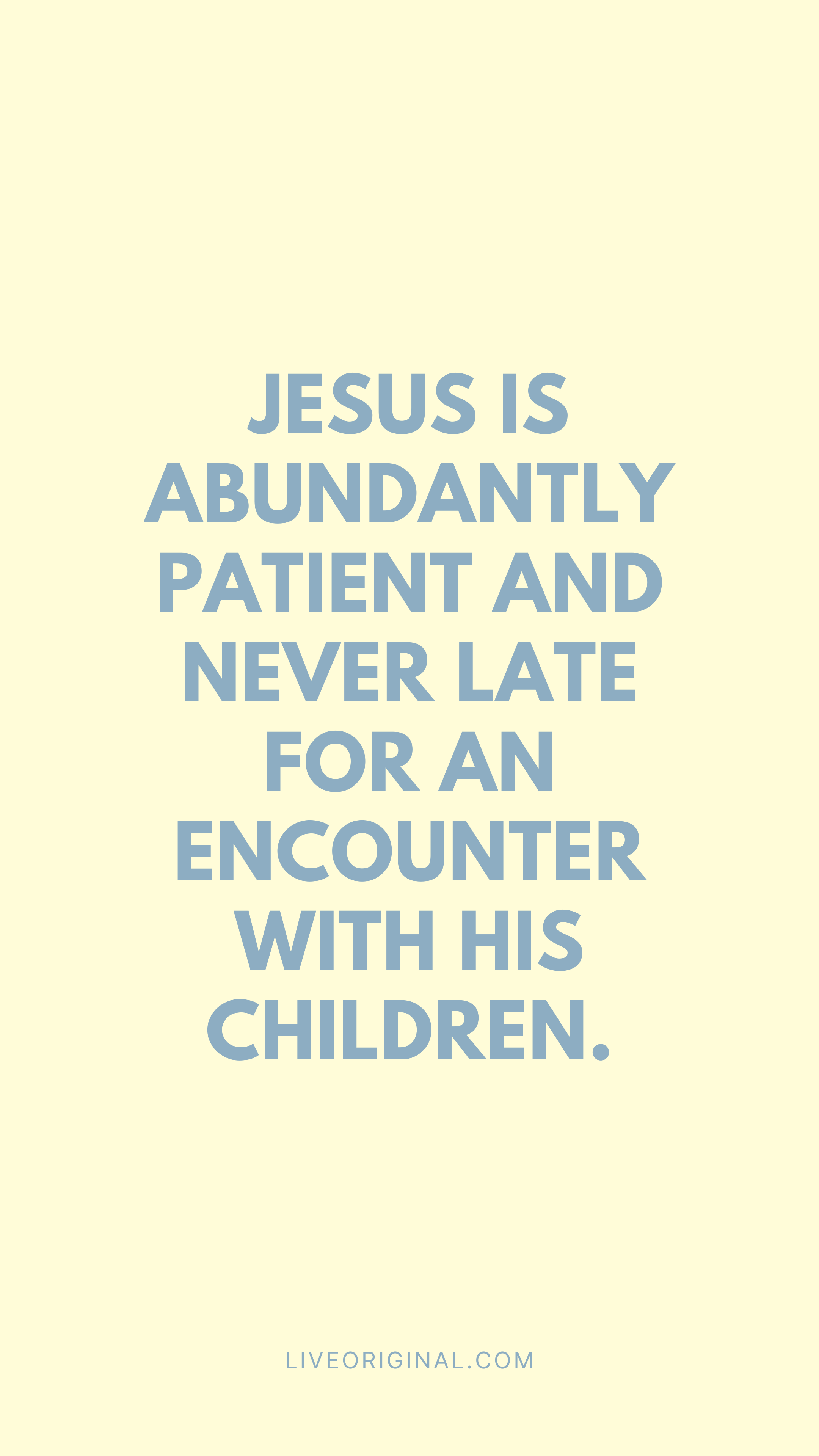
by Morgan Krueger | Feb 4, 2025 | Featured, Freedom, Hope, Joy, Life Advice, LO Library, Redemption, Shame
Happy Tuesday, friend! We’re excited to share Part 1 of our newest workshop in the LO Sister App, Goodbye Hiding, Hello Freedom, with you here on the blog. For more of this workshop, join us at losister.com. 🙂 Enjoy Part 1!
___________
“The LORD is gracious, and full of compassion; Slow to anger, and of great mercy. The LORD is good to all: And his tender mercies are over all his works.” Psalm 145:8-9
“We need to talk about our pasts…”
A conversation I dreaded having at one point in my life. My now husband, Ryan, and I were dating and things were getting serious. Heading toward what looked like an engagement, there were obvious conversations we needed to have. One of them obviously being our pasts. We each knew bits and pieces of each other’s history, but I had never actually gotten into the details of my past. With anyone. Even myself. It was an area that I avoided with every fiber of my being. But one that I knew if I wanted the future God had for me, I needed to face the past that haunted me.
So the question is: How do we deal with our past in a way that can bring healing and freedom?
First, we must understand what is holding us back from freedom when it comes to this area. We have to understand shame.
If I could give the spark notes version (I encourage you to read the entire story!), shame entered the Garden in Genesis 3 when Adam and Eve ate of the forbidden tree – going against God’s command for them. Once they made that decision, making them realize they were naked and exposed, they turned away from God instead of running to Him. When we hide from God, we experience shame. Running away from God produces shame. Running to God produces freedom. Our direction dictates our freedom.
The problem with shame is that it doesn’t just fixate on what we’ve done. It convinces us that what we’ve done is actually who we are. It’s a lie attacking our truest identity.
So this shame…. What do we do with it?! And how can we get our freedom back?
Friend, we need to go back to our past. I know. It feels hard. It’s scary. And painful. And a million other things. BUT, I have good news for you.
You don’t have to go back to the past with the enemy. For years, this is why I never could find freedom from my past. It’s because I was going back with the wrong voices. I was going with the enemy. When we go back with him, the master of lies, he will continue to keep us replaying the same old mistakes over and over again, with no relief in sight.
No. Let’s not go back with him. Let’s go back with Jesus. The enemy wants to take us back to relive. Jesus wants to take us back to redeem. He can be trusted with the most vulnerable, delicate parts of you without putting you to shame.
Practically, what does this look like?
First, It looks like remembering that you have a choice on what you think on. For years, when I would get a flashback from my past, I wouldn’t fight it. I would just stay there. And relive. And rehash. And revisit without any truth. But Jesus gives us a better way. Paul, in his letter to the Church at Philippi gives us a beautiful framework on where our thoughts should be directed:
“Finally, brothers and sisters, whatever is true, whatever is noble, whatever is right, whatever is pure, whatever is lovely, whatever is admirable—if anything is excellent or praiseworthy—think about such things.” (Philippians 4:8)
Next, it means bringing people into our shame. In God’s good design, He sends us people to walk with us. To know us. To hear us. To see us and pray for us. And to remind us that there’s freedom in Christ.
James, the brother of Jesus, puts it this way: “Therefore confess your sins to each other and pray for each other so that you may be healed. The prayer of a righteous person is powerful and effective.” (James 5:16). When we let people in, chains break and freedom starts to replace our shame, little by little, piece by piece. More on that later in the workshop!
Lastly, it means taking God at his word. Scripture gives us countless descriptions of who God is but one of my favorite verses on this is found is the Psalms. It says that, “The LORD is gracious, and full of compassion; Slow to anger, and of great mercy. The LORD is good to all: And his tender mercies are over all his works.” Psalm 145:8-9
When we know that this is who our God is, we are way more likely to run to him and cry out “Abba, Father, with you and only you can I truly be set free.”
As you’ll learn through my story throughout this workshop, Jesus took a girl who thought she would forever be marked and covered by the shame of her past, and has offered her more freedom than she ever knew was possible. If He’s done it for me, he can (and wants to!) do it for you.
So girl, if you want freedom, go back with Jesus and let him do what he’s best at: taking the hardest moments of our past and redeeming it in a way only he can. He will redeem spaces, friendships, memories, hometowns, fatherhood, family, and more. You name it, He can redeem it.
Morgan Krueger is a Jesus follower, wife, mother, and author who found her voice connecting with women seeking freedom from the brokenness of past shame. Her first book, Goodbye Hiding, Hello Freedom: Trading Your Shame for Redemption in Jesus, is out now. In her downtime, you can find Morgan enjoying the significance of the mundane, including spending time with her two sons, encouraging women through words and watching British baking shows with her husband, Ryan, in Franklin, TN. You can connect with her on Instagram @morganwkrueger and at morgankrueger.com.

by Morgan Krueger | Nov 28, 2024 | Featured, Grief, Hope, LO Library, Perspective
For some of us, this holiday season marks a joyful “first”: baby’s first Christmas, first year married, first year being all together.
For others, this year may mark a “first” that feels anything but joyful: first year without “them”, first year with the diagnosis, first year alone. And for others, it may not be a “first”, but this holiday season carries a heaviness that can’t quite be put into words, even if you tried.
Did you know that the word “holiday” comes from an Old English words meaning “holy day?” I believe this is so important because when we first think of the holiday season, it’s so easy to measure it on the scale of whether it’s going to be a “good” “bad” or “hard” holiday season. But what if the origin of this word opens up so much more meaning of the holidays for each of us, no matter what season we find ourselves in?
What if we asked Jesus, the author of our stories, the following questions as we kick off the seasons festivites:
Lord, what does clinging to your holiness in the brokenness look like this holiday season?
Jesus, how can I bring your sacred presence into my home, even if my family can’t get along?
God, what areas of my life am I not leaning on your holy presence?
My prayer for you, is that you would see these holy moments found in God’s presence all around you this holiday season. Not in spite of what you are carrying this year, but through it.
I pray that the “God of all comfort who comforts us in all our affliction” (2 Cor. 1:3-4) will draw near to you this year, nearer than you ever knew possible.
I pray that if you’re in the valley, Jesus would wrap his arms around you through His presence, His word, and His people. And if you are the friend walking alongside someone in the valley, that you would comfort them just as you have been comforted through the power of prayer and presence.
If I’ve learned anything, it’s that we as humans need two fundamental things in life: We need God and we need each other 🤍
Let’s be people who seek help when we needed this year and also be those who keep our eyes open for those who may need a smile, a hug, and prayer.
Happy Holy Days, friends 🫶🏼

by Morgan Krueger | Sep 4, 2024 | Family, Freedom, Grief, Hope, LO Library, Love, Redemption, Wisdom
One of my favorite pool games growing up was the penny game. Basically, we would bring a handful of pennies to the pool, throw them in, and race to see how many pennies we could find. Whoever found the most pennies won the game.
Competitive by nature, I wanted to win probably more than I cared to admit. There was one problem: my stubborn self refused to wear goggles, giving my sister an obvious advantage over me. As much as I desired to win and find all the pennies, without the proper eyewear, I would just drift around picking up any blurry speck I could find.
Without the proper equipment for the game, my vision would always be impaired, impacting my ability to see clearly and participate well.
But the penny game isn’t the only area of life where seeing well matters. In our spiritual lives, we need a clear view of God to start to let Him into our lives to love us, care for us, and redeem us as His daughters. And a clear view of God starts with knowing more about who he is and what He’s like.
- W. Tozer clearly explains these qualities, or attributes of God as things about God that are not only true, but also ones that we can know because He has revealed them to us:
“What is God like? What kind of God is He? How may we expect Him to act toward us and toward all created things? Such questions are not merely academic. They touch the far-in reaches of the human spirit, and their answers affect life and character and destiny.”
Today, I’d love to look at God’s love together.
The word love is often one that we neglect and misuse. I don’t know about you, but I’ve actually had my heart broken by people who said they really loved me. In a sense, love has been dragged through the mud at times in my life. My guess is that in one way or another, you can relate. That is why it is absolutely crucial that we understand what it means when we say God is the root and the essence of the true version of love.
One of the greatest metaphors in all of Scripture for the Father’s love is found in Luke 15. In short, a father has two sons. One son demands his inheritance. He runs away, uses it, and squanders everything he’s been given. Ashamed and downcast, he musters up enough courage to return home and try and convince his dad to at least let him back into the home, even if as a servant. Let’s pick up at the moment of his return:
But while he was still a long way off, his father saw him and felt compassion, and ran and embraced him and kissed him. And the son said to him, “Father, I have sinned against heaven and before you, I am no longer worthy to be called your son.” But the father said to his servants, “Bring quickly the best robe, and put it on him, and put a ring on his hand, and shoes on his feet. And bring the fattened calf and kill it, and let us eat and celebrate. For this my son was dead, and is alive again; he was lost, and is found.” And they began to celebrate. (Luke 15:20–24)
So many people read this and focus only on the prodigal son. But this story is about so much more. A major theme in it is the father and how he demonstrates God’s love.
The father would have been wearing a long, heavy robe with multiple layers. Not only that, but it was seen as disgraceful for a man of status to run like we see in this parable. But this father wasn’t just any father. He was one who had abundant grace and love toward those who were his own. He deeply desired his son to return, even if the son didn’t believe his father wanted him to. This is love.
Let’s look at the end of the story when his older brother finds out the younger brother has returned.
“He was angry and refused to go in. His father came out and entreated him, but he answered his father, “Look, these many years I have served you, and I never disobeyed your command, yet you never gave me a young goat, that I might celebrate with my friends. But when this son of yours came, who has devoured your property with prostitutes, you killed the fattened calf for him!” And he said to him, “Son, you are always with me, and all that is mine is yours. It was fitting to celebrate and be glad, for this your brother was dead, and is alive; he was lost, and is found.” (Luke 15:28–32)
What does this show us about God the Father’s love?
God’s love is not contingent on what we do or don’t do. For the son who returned home full of shame and regret, everything the father had was his. For the son who never departed from him, everything the father had was also his. This is the Father’s love—filled with reckless abandon for those He calls His own.
After my dad died at 15 years old to liver cancer, there was a shame that haunted me. At fifteen, I had no idea how to watch someone I love die or how to even be around him. I found myself being completely emotionally shut off toward him out of a place of deep sadness and fear of losing him. On top of all that, because I wasn’t able to make it to him in time before he went into a coma, I never got to tell him how much I loved him and that he was a good dad.
With him gone, the daunting reality that I would never get to tell him these truths caused pain in the deepest parts of my being. To the point where I didn’t know if I would be able to live the rest of my life knowing that I had blown it in his last days. The enemy attacked me hard with this lie and I lived every day in despair and regret.
About a month went by as I walked in this specific pain. One morning around that time, I woke up and found myself physically unable to get out of bed. The grief was attacking every part of my body and I had no strength to go on another day. My mom allowed me to stay home that day from school and I quickly drifted back to sleep. I woke up around noon, figured I should try and get up and eat something, and stumbled to the door. I opened the door, looked down, and saw a letter sealed with an envelope with my name on it. I immediately recognized the handwriting—my dad’s. Unknown to me that he even wrote me a letter, I was met with nerves, excitement, and fear. What will he say? Will he be disappointed in me as a daughter over how I handled the months leading up to his death? I made my way downstairs and slowly opened the letter and braced myself for whatever it might say.
The letter read: “Morgan, if you are reading this, I have died and am now in Heaven with God.” What followed shook me to my core:
I want you to know that I know how much you truly loved me.
Did I read that right? I read it again. And again. And again. Did he really just say that he knew how much I loved him? What I was expecting was for him to say that he loved me. But he knew I already knew that. What he somehow knew was what I would truly struggle with: the fear of him not knowing my love for him. In that moment, chains broke. God freed me from the one lie that I would have believed for the rest of my life.
A lie that could have broken me.
A lie that could have made me take my life.
A lie that would have held me back from freedom.
That day, just like the prodigal son and the older brother, I learned that God’s love for us will never be contingent on our performance or perfection. It was in our inability to perform or be perfect that Christ died for us.
I have heard it said that salvation is free, but surrender is costly. Will you surrender even the darkest places to the Father who is eager to pour out His goodness, immanence, and love onto you as His beloved?
All you have to do is allow the Father to love you and respond with loving Him back. When we learn to be loved, everything else will follow.
As I think back to that nostalgic summertime pool game, I like to think of those pennies as attributes of God. All around us, clear for us to see, and ready for discovering if we have the proper equipment. But instead of goggles, God pours out His Word, His Spirit, and His Son—all helping us to see the truth that He is full of love, He pours out His love, and He is love.
Morgan Krueger is a Jesus follower, wife, mother, and author who found her voice connecting with women seeking freedom from the brokenness of past shame. Her first book, Goodbye Hiding, Hello Freedom: Trading Your Shame for Redemption in Jesus, is out now. In her downtime, you can find Morgan enjoying the significance of the mundane, including spending time with her two sons, encouraging women through words and watching British baking shows with her husband, Ryan, in Franklin, TN. You can connect with her on Instagram @morganwkrueger and at morgankrueger.com.

by Morgan Krueger | Jun 18, 2024 | Featured, Feeling Far from God, Friendship, Life Advice, LO Library, Purpose & Calling, Relationships, Sisterhood & Community
I remember one of the first children’s Christian hymns I ever learned in Sunday school. Maybe you know it, too. It goes like this:
Jesus loves me, this I know,
for the Bible tells me so.
Little ones to him belong;
They are weak, but He is strong.
I can still hear my Sunday school class sing this song all together. I sang with such confidence that it was true. I just loved it, and I loved the lyrics. I mean, who doesn’t love being loved? I sure do. I’m guessing you do, too. We all have this desire to be seen, known, and loved.
As we get older and experience more life, opening ourselves up to love can feel absolutely terrifying over time. As Tim Keller explains, “To be loved but not known is comforting but superficial. To be known and not loved is our greatest fear. But to be fully known and truly loved is, well, a lot like being loved by God. It is what we need more than anything.”
Although I didn’t fully grasp how true these lyrics were at five years old in my Sunday school class, I understand now that the Bible actually does tell us so. The Word of God is full of Jesus’ love for us. And we discover the depth of love Jesus has for us, only then can we begin to open ourselves up to being known and loved by another human being. Jesus first, relationships second. Always.
In John 4, we meet a sweet friend who was looking for water, but needing so much more. We don’t know her name, but we learn a lot about her and Jesus from this conversation surrounding a water source:
A woman from Samaria came to draw water. Jesus said to her, “Give me a drink.” (For his disciples had gone away into the city to buy food.) The Samaritan woman said to him, “How is it that you, a Jew, ask for a drink from me, a woman of Samaria?” (For the Jews had no dealings with Samaritans.) Jesus answered her, “If you know the gift of God, and who it is that is saying to you, ‘Give me a drink,’ you would have asked him, and he would have given you living water.” (John 4:7–10)
That’s only the beginning of her interaction with Jesus. I encourage you to read the rest of her beautiful story in John 4:11–30. But here’s what we learn about her from her time with Jesus.
She was culturally seen as “lesser than” because she was a Samaritan. Being one meant that she was generally hated by Jews for religious and racial reasons. On top of that, Samaritans were known for having unstable theological beliefs, not fully rooted in Scripture. All of this is the perfect storm for prejudice and cultural tension between these two people groups.
Also, she struggled with shame and isolation. We see in verse six that she came at the “sixth hour,” meaning around noon. Culturally, women would travel in groups in the early morning hours (the coolest time of the day) to draw water from the well. But our friend not only showed up at the hottest hour of the day, but she also came alone.
When we feel shame, we pull away from God and from others. Isolation is one of the biggest tools the enemy uses to keep us in our thought patterns of shame, guilt, and regret. That’s where we find her. That’s right where Jesus found her. And He had something to say about it.
Lastly, she had a questionable past when it came to relationships. “The woman answered him, ‘I have no husband.’ Jesus said to her, ‘You are right in saying, “I have no husband” for you have had five husbands, and the one you now have is not your husband. What you have said is true’” (John 4:17–18).
When we’re not rooted in Jesus, we have no idea what to look for. Our friend here had men give her attention, maybe even fulfill certain desires that she had (to be loved, to be taken care of, to be seen), but she was never truly satisfied because no man could ever give her what she truly longed for. She was looking for a love that stayed. A love that wasn’t based on emotions and feelings but on commitment and Christ. She was looking for living water. And although she hadn’t yet found it, the Living Water found her.
Here’s what we learn about Jesus.
Jesus will take the unlikely path to pursue you. Because of the cultural hostility that the Jews had toward Samaritans, Jewish people typically didn’t travel through Samaria when going from Judea to Galilee. Culturally, the hate was so real that they took the long route just to avoid the entire town. The tension was also real. But see here that Jesus didn’t take the path most others took. Instead, verse 4 says, “And he had to pass through Samaria.” This was a “had to” not out of a place of obligation or expectation but out of necessity to reach her.
Jesus will take any route He needs to take to get to your heart and your hurts. Not only did He take the unlikely route here, but He also waited for her. We see here that Jesus is willing, able, and eager to wait for us. Just like He was with this woman, He’s abundantly patient and never late for an encounter with His children.
Next, Jesus will break any barrier to pursue you. In that day, it’s important that we understand the role that women played in society. They were seen as the lowest class. On top of being not just a Samaritan, but a Samaritan woman, sister-friend didn’t have a whole lot going for her. But we see here that Jesus wasn’t too concerned with cultural barriers when it came to pursuing those He was after.
“Jesus said to her, ‘Give me a drink’” (John 4:7). Not only did Jesus speak to her, but He humbled Himself to ask her for something. He knew they were going to have a hard conversation, and He wanted her to know that she had a Savior that wasn’t afraid to get on her level and meet her where she was.
Lastly, Jesus will enter into your mess to pursue you. Are there parts of your life that just feel messy? Unhinged? Falling apart? Me, too. Same for our friend here. She had parts of her life that she would probably do anything to hide. But Jesus wasn’t afraid of those areas. On the contrary, those were the exact areas He was excited to dig into with her.
I’m not proud of this, but I’m a pretty messy person by nature. I remember when Ryan and I were engaged, so many people would warn me that living with a boy is messy and that I better prepare myself. I rarely commented back, but I always remember thinking, Actually, I feel bad for Ryan that he has to live with me. Yes, I am the messy one in our marriage.
One of the main messes that I make is what I like to call “my piles.” If you are a pile maker, you know what these are. They are piles of clothes. After trying on multiple outfits a day, I will form a pile in a corner of our room instead of hanging those clothes up. It’s become a running joke because if Ryan sees a pile, he can’t understand how it could be anything but dirty clothes. But with lots of patience, I explain to him that there is a difference between a clean pile and a dirty pile. In fact, most of my piles are clean! Men, right?! Just kidding! It’s a real problem, and I’m working on it 😉
I think sometimes we also compartmentalize the messy part of our lives. We have the “not so bad piles,” the “dirty piles,” and even the “looks clean on the outside piles.” But at the end of the day, a pile is a pile. And Jesus came to enter into our piles, no matter how dirty or put together they may seem. If something isn’t where He calls it to be, He will enter in and address it—even the piles we’re afraid for anyone to see.
That’s what He did here with our friend at the well. He wasn’t afraid to have the hard conversations about her relationships. He addressed the reality of her past without judgment or heaping shame onto her. Just like her pile of past broken relationships, we each have hard areas that Jesus is sitting, waiting, and ready to be welcomed in.
Friend, Jesus will never enter a situation that He doesn’t fully plan to redeem. His pursuit always has purpose. Let Him into the hard piles, the messy piles, and even the piles you’ve come to accept, and watch what He’ll do. This is the best kind of loved. Fully seen, fully known, fully loved.
Morgan Krueger is a Jesus follower, wife, mother, and author who found her voice connecting with women seeking freedom from the brokenness of past shame. Passionate about the redemption found in following Jesus, Morgan aims to keep that at the center of all she does. Morgan works at Faithfully Restored, a ministry that offers the hope of Jesus in the midst of suffering. Her first book, Goodbye Hiding, Hello Freedom: Trading Your Shame for Redemption in Jesus, releases in September 2024.
In her downtime, you can find Morgan enjoying the significance of the mundane, including spending time with her two sons, encouraging women through words, and watching British baking shows with her husband, Ryan, in Franklin, TN. You can connect with her on Instagram @morganwkrueger and at morgankrueger.com.
by Morgan Krueger | Dec 8, 2022 | Wisdom |
Around the holiday season, there are two types of people. Those who put their tree up before Thanksgiving and those who wait until after. It’s really funny to see how the people who wait until after are incredibly proud of their act of self-control. And the ones who pull the trigger before Thanksgiving seem to be even more proud of their Christmas cheer singing loud for all to hear.
As I’m not above any of it, I am proud to say that in the Krueger household, our humble 7-foot artificial tree that Ryan and I have had since our first year of marriage is always up before we head out of town for Thanksgiving. Yes, we are those people. If you don’t like it, I hope we can look past our differences in the name of all that is merry and bright. Regardless of who you are, I think we can agree that, for one reason or another, we all love Christmas.
What’s not to love? The lights, the trees, the shows, the food, the parties, the gifts, the music, the movies, the fellowship. The list goes on and on, just like our amazon wish lists. And who doesn’t love their friend’s annual Christmas cookie party?
Beyond all of the festive hype of Christmas, I believe there’s a desperation for the holiday season that goes deeper than just gifts and lights. It’s an eagerness of soul, a longing, and an anticipation that there might just be something fulfilled that our hearts search for during this time.
2,000+ years ago, before Christmas lights and caroling even existed, the origin of why we celebrate centered around only one thing: a desperation for the coming King. It’s the heart of advent, which literally translates “arrival” or “coming”.
On the night of Jesus’ birth, a heavenly host of angels gloriously broke onto the scene before an unlikely group of people that we read about in Luke 2:8-20:
“And in the same region there were shepherds out in the field, keeping watch over their flock by night. And an angel of the Lord appeared to them, and the glory of the Lord shone around them, and they were filled with great fear. And the angel said to them, “Fear not, for behold, I bring you good news of great joy that will be for all the people. For unto you is born this day in the city of David a Savior, who is Christ the Lord. And this will be a sign for you: you will find a baby wrapped in swaddling cloths and lying in a manger.” And suddenly there was with the angel a multitude of the heavenly host praising God and saying, “Glory to Go in the highest, and on earth peace among those with whom he is pleased!”
When the angels went away from them into heaven, the shepherds said to one another, “Let us go over to Bethlehem and see this thing that has happened, which the Lord has made known to us.” And they went with haste and found Mary and Joseph, and the baby lying in a manger. And when they saw it, they made known the saying that had been told them concerning this child. And all who heard it wondered at what the shepherds told them. But Mary treasured up all these things, pondering them in her heart. And the shepherds returned, glorifying and praising God for all they had heard and seen, as it had been told them.”
Have you ever thought about the fact that Jesus, being God incarnate, was fully sovereign and in control over every detail of His birth?
In February of this year, Ryan and I welcomed our first child, a son, into this world. Our baby, Graham, was a beautiful picture of the faithfulness of God in our lives and we couldn’t wait to tell those we loved that he was finally here. But there was an order to his birth announcement. We started with our immediate family, then extended family, then close friends, then other good friends, and then finally made an announcement on social media. We think Graham is pretty great, but not so great that he would have the ability to control the news of his arrival or any other detail of his birth for that matter. But the baby in a manger, Jesus, actually did have full control over His.
Jesus, the long-awaited savior-King, could have sent the angels to ANYONE to give the good news of great joy. And who did He send them to first? The shepherds.
At that time, shepherds were regarded at the very bottom of the Palestinian social ladder, right there with the tax collectors and those who cleaned up literal waste. They held a reputation of “incompetence”, to the point where it was stated that if one were to a fall into a pit, no one should feel obligated to pull them out. Sheesh. Talk about a tough go.
But in Jesus’ upside-down Kingdom, they were the perfect audience to receive the invitation to first behold His glory.
So why the shepherds? Jesus wanted to start his life the same way that he would end it – by coming to seek and save that which is lost (Luke 19:10).
The shepherds had nothing in their own merit or reputation to cling to. They knew they were depraved. They were okay to show their need. And because of that, they weren’t afraid to be desperate for that which could save, redeem, free, and heal.
Just as there are two types of people during the holiday season, they are also two types of people in the gospel story, both in which need saving: those who know it and those who don’t.
When it comes to the birth of Jesus, we will never care about it unless we see that we are those in which He came for. We are those that need saving this Christmas. Not just for the neighbor that drives you crazy. Not just for the friend that has hurt you. Not just for the significant other that you wish put you first more. Jesus came for me. Jesus came for you. We are the people who desperately need saving this year.
So, when the shepherds heard of the Good News, what did they do? They responded in their desperation. Luke’s account of the story tells us that they responded with “Let us now go”and then they “went with haste”.
After years of longing for a Savior, the silence was broken on this dark night in Bethlehem. And the shepherds traveled far and wide not for worldly gain, but for just a glimpse of Emmanuel – God with us.
The posture of the shepherds thousands of years ago shows us what the advent season is supposed to stir in us today: an awareness of our need for saving, and an awakened desperation for the presence of our Savior.
So my question is this: Are we as desperate for Jesus as we are for the Christmas parties, the presents, and another year of our favorite holiday traditions?
I don’t know about you, but for me, I could easily fill this month with some of the best things: friends, family, gift giving, volunteer opportunities, Christmas Eve services, advent devotionals, lights, hot cocoa, celebrating my baby’s first Christmas, photo ops, Christmas cards, extra rest, you name it….. and I could still miss it. I could miss the wonder, the awe, the haste, the urgency, the longing, and the desperation for the origin of the Christmas story: Jesus. Let’s not miss it this year.
This advent season, let us see ourselves as shepherds, full of lack and with nothing to boast in but Christ. Let us remember the goodness of God in the past to send us His son to be born, live the perfect life we could never live, and to die a death that we deserved… all to set us free from sin and death. And let us look ahead to the promise that one day He will return and bring it all to peace.
He will right every wrong.
He will heal every sickness.
He will wipe every tear.
He will welcome every outcast.
He will free everyone stuck in shame.
He will redeem all brokenness.
I pray it’s such a wonderful holiday season for you. I pray you laugh, drink all the hot cocoa, see all the lights, watch all the classic movies, attend all the festive parties, kiss under the mistletoe, and soak in all the music, fellowship, and chats around the fire. But above all, I pray you and I experience Jesus in a renewed way this year. I pray we would crave His presence. I pray we would cling to His word. I pray that we would look to Him as our ultimate comfort and our true reason for the season.
Let’s be desperate together for true Christmas this year. Let’s be desperate for Jesus.
Morgan Krueger is a wife, mother, and an encourager at heart. She loves all things Fall, talks around a fire, and teaching/learning what it looks like to follow Jesus. Having been on team LO, she will always have a “young & scrappy” mentality when it comes to life, ministry, & sisterhood and is so grateful for any opportunity to come back & encourage sisters and friends. You can read more from Morgan on Instagram @morganwkrueger 🙂
























